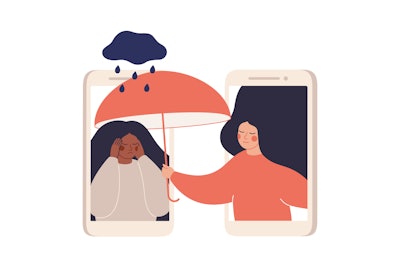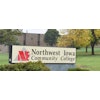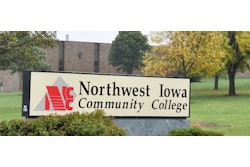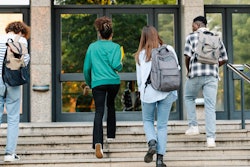For years, it was policy for the colleges in the Virginia Community College System (VCCS) to partner with their local Community Service Boards (CSB) to connect students with outside mental health resources. Colleges were not allowed to provide counselors themselves.
Then, the pandemic happened.
After March 2020, even urban areas flush with doctors, therapists, and psychiatrists found those resources stretched thin as they traversed the destabilizing waters of the virus. At Lord Fairfax Community College in Middletown, Warrenton, and Luray, their local resources were stretched so thin that students could wait up to eight weeks for an appointment.
“We’re in a fairly rural area, and there’s a real lack of mental health care — there just aren’t enough providers,” said Caroline Wood, associate vice president of student services and academic support at Lord Fairfax Community College. “And one of the things we know is that it’s very hard, if someone is anxious and depressed, if there’s any barrier or wait time, someone will not seek the service.” 
Now, VCCS's policy has changed. In September 2021, VCCS allowed for third-party vendors to serve the health needs of their students. By December, community colleges across the state were partnering with TimelyMD, a telehealth service that provides on-demand and appointment-based medical care, mental health support, psychiatric support, health coaching, basic needs and self-care assistance to 10% of all community college students in the nation, at no cost to the students.
A 2021 survey of students in VCCS conducted by The Hope Center, a research organization at Temple University that aims to make higher education more effective and equitable, revealed that at least one third of VCCS students had a close friend of family member become sick with COVID. Five percent (5%) were sick with COVID themselves, and 10% lost a loved one to the virus, with Black students three times as likely as their white counterparts to lose someone close to them. Thirty-five percent (35%) of students said they exhibited signs of anxiety.
“Community college students are incredibly resilient and often have to overcome a unique set of challenges due to social determinants,” said Becky Laman, senior vice president of growth strategy and partnerships at TimelyMD. “Helping those who are struggling with mental health means a great deal to us. We are enabling students to take charge of their well-being and can contribute to their success as a student. Their successes are our successes.”















